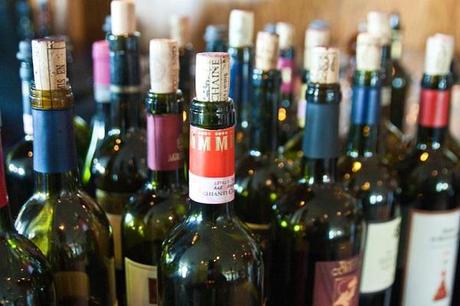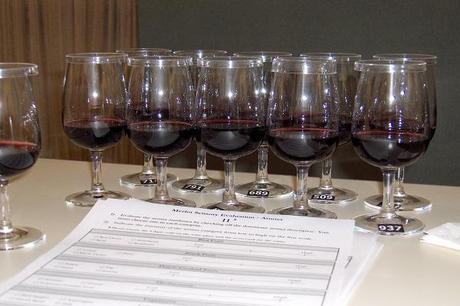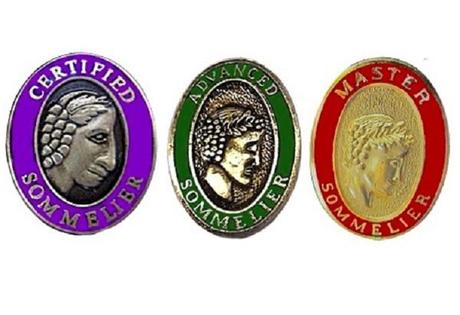
So, what is so hard about reading and knowing lots of stuff about wine and being able to tell the best wine by simply looking, smelling, shaking or testing it? Well, as testimonial after testimonial has proved, becoming a master sommelier is harder than becoming a doctor. The Master Sommelier diploma exam has been ranked the hardest exam in the world, which may explain why there are less than 300 certified master sommeliers in the whole world since 1969. Not because people don’t want to become sommeliers, but it is because training for over seven years to taste wine is way harder than other things you could do with your life. Here is a look at why this seemingly simple certification is so hard to achieve and live by.
The Decades Of Preparation
Before someone can sit the Master Sommelier Exam, they have to achieve three levels of certification. The first three in themselves take a lot of time and dedication. You have to pass the introductory tests, become a certified sommelier and then pass an exam that makes you an advanced level sommelier before your application to the court of master sommeliers can be considered.
Even after applying, you have to train extensively for the exam and that means traveling a lot and sampling lots of wines from all over the world. You also have to train extensively on your service skills because that is part of the exam. It takes decades for most people to reach the advanced stage before they can even think of becoming masters.
Getting Drunk On The Job
Some people assume that since sommeliers only take tiny sips of wine, so, they can’t get drunk but that is far from the truth. During preparation for the exams and even while at work, sommeliers may taste up to seventy different samples of wine a day. That is more than enough to get someone drunk. The long hours of work involved mean that you have to keep a straight head even when you are tipsy and that is not an easy job.
The Huge Costs Involved
Some big restaurants sponsor their employees to become master sommeliers but most of the people that take the exam have to use their own money. The fee for the exams was $4000 in 2018, and that may have changed. However, the biggest costs go into traveling and tasting. No one will allow you to taste their bottle of wine for free so you have to buy all the wine that you will sample.
You also have to travel all over the world and study the wine villages yourself and taste the wine, especially if you can’t find the wines from these places in stores and restaurants around you. One master interviewed by Forbes in 2013 confessed that he must have spent over $40,000 on the entire process of preparing for the exam to become a master sommelier. That only holds if you pass the exam though. Most people that take the master sommelier exam don’t pass until their third or fourth attempt.

The Competition
There aren’t that many master sommeliers around the world, but that doesn’t mean that the world is short of wine masters. Actually, most of the people that pose a huge competition to master sommeliers are self-made wine masters. Most of them haven’t set a foot in a sommelier examination room but they are as knowledgeable as they are because they live and interact with the industry every day. Most restaurants are also unwilling to pay top dollar for a master sommelier if their clients can be satisfied with the service of an introductory level or even certified sommelier. In the end, most master sommeliers are forced to either start their own wine production and consultancy lines, which can be very hard as well or settle for less pay.
The Certificate Alone Isn’t Enough
Waving your master sommelier certification around isn’t enough to prove to people that you are a master. The wine industry is a rapidly changing one, so your personality and knowledge of current trends are more important than your knowledge of wine-producing villages alone. Knowing the type of soil wine was grown in, the flavours added to the wine and how long it has been aged is important but most customers don’t care about those technicalities. Everyone wants to be served by a sociable sommelier who can understand their taste for wine and give a good chat. The award-winning wine steward Zack Charilaou told the Guardian in 2016 that a sommelier needs 80 percent personality and only 20 percent knowledge.
The Tough Exam
The UK master sommelier exam is considered the hardest in the world, although the Court of Master Sommelier standardizes the exams all over the world and none of them is any easier. The exam has three parts. The first section is a written theory test where your knowledge of wine and wine-producing regions, as well as service, is tested. The second section is a practical exam that tests your service skills. You have to bring out the skills of a sommelier giving those smiles and answering the toughest questions a customer may ask you.
Most people pass the first level but fail at the second. The third section is blindfold testing which is the toughest of all. You have to tell all the details of wine from the exact wine village in the world where it was grown, the type of soil, flavours used and aging. There are over 10,000 wine villages in the world and the difference in the taste of wine might be too slight to notice. Many people say that the exam is harder than a medical-degree exam. You have three years to pass the exam when you fail the first time and if you don’t, you have to start all over again. Many just give up.
There is Zero Tolerance For Mistakes Here
As we stated earlier, the personality of a sommelier matters way more than their knowledge. The standards are examined in the examination and one has to score over 75% to be certified but it doesn’t end there. Being a master sommelier puts you in the spotlight where you have to prove yourself to both employers and customers that you are a guru of the wine world. You also have to please everyone, and the slightest mistake might see your career doomed. If you make one mistake at the table, it might be the last one in your career.
Working 365 Days
Many people think that drinking wine and telling people which one is the best is a simple fun job but it isn’t. A master sommelier has to be at the restaurant all the time, and while the rest if the staff may help with the customers, the sommelier has to be involved with every order to ensure that the restaurant stocks all the best wine and every customer gets their taste. Weekends and holidays are still working days for the sommelier, and late nights at work are your way of life. Your schedule and that of the chef at the restaurant and pretty much intertwined.

Extensive research and Knowledge of wine is required
New wines come out every day and the wine producers try to improve the taste of their wine every day and it is the job of the sommelier to know all of them as they come. It means that you have to continue polishing your skills as a sommelier every day while on the job reading wine magazines and interacting with other experts in the industry. That means the sommelier is ever a student while teaching and if your knowledge falls behind the current trends even for a day, it may ruin your career.
You Are Always Dispensable
Assume you are the owner of a struggling restaurant and you have to lay off employees that the business can do without. No one has ever heard of a restaurant that fell because the sommelier was fired or resigned. Most restaurants consider sommeliers a luxury that they can do without. Whenever they have a cheaper option that can satisfy their clients or the business gets into financial difficulty, they never delay to lay off sommeliers.

